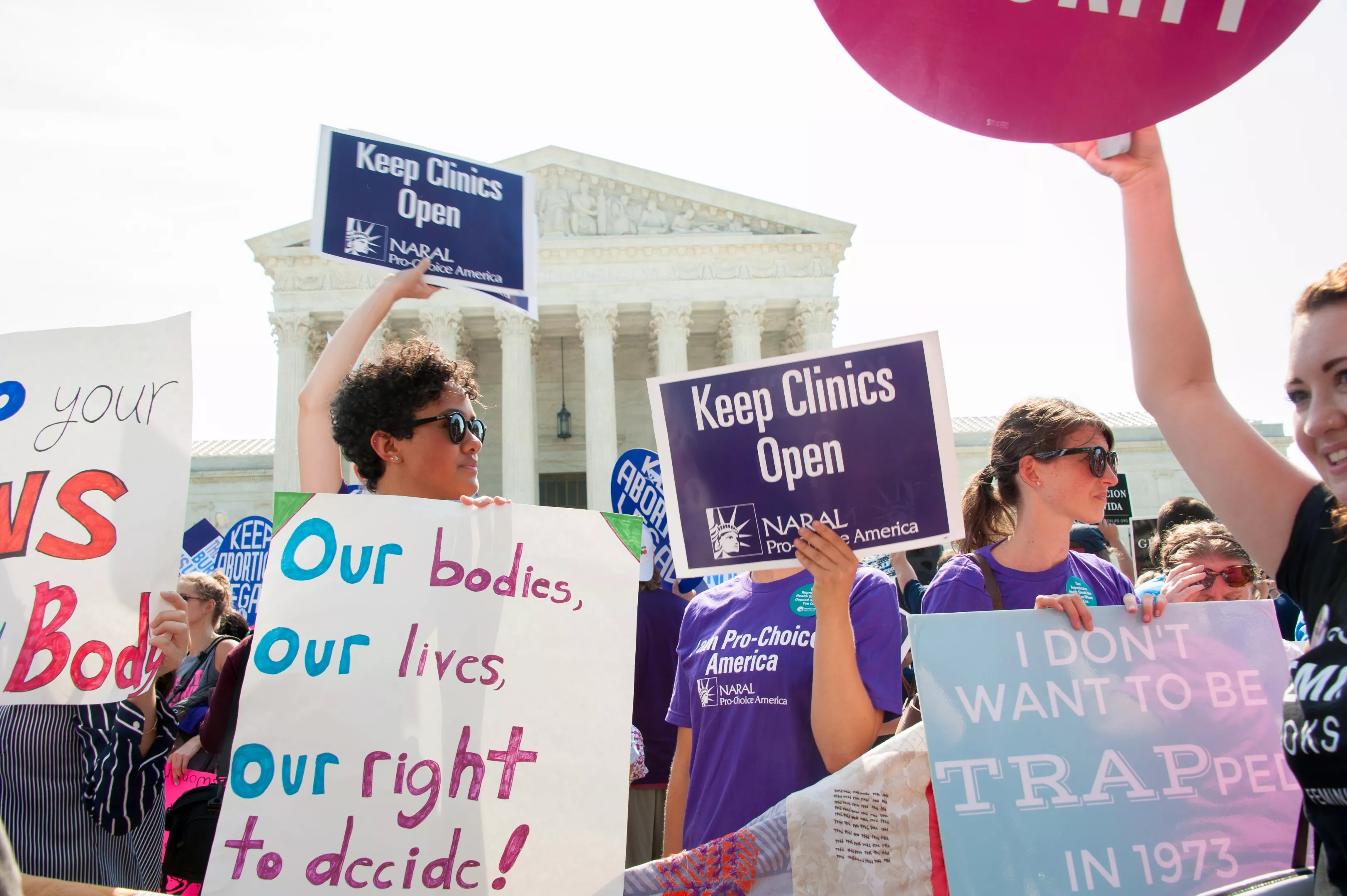
Shutterstock

Audio By Carbonatix
Reproductive rights advocates are ramping up their attempts to prevent a restrictive Texas abortion law from being enacted this week.
On Monday, the American Civil Liberties Union (ACLU) of Texas, along with several other organizations, filed an emergency request with the U.S. Supreme Court beseeching it to block a “radical” new abortion ban, according to a news release. The filing comes after the 5th U.S. Circuit Court of Appeals on Sunday denied a request to block the law, Senate Bill 8, which is set to take effect on Wednesday.
Up to 90% of women who get an abortion in Texas are at least six weeks pregnant, and the bill would effectively ban the procedure beyond that point, according to the release. Plaintiffs in the case include Whole Woman’s Health and other abortion providers, Texas abortion support networks and funds, health center staff, doctors and clergy members.
Whole Woman’s Health clinics will continue to provide abortion care services until the minute SB 8 takes effect, said President and CEO Amy Hagstrom Miller.
“Texans, like everyone else in this country, should be able to count on safe abortion care in their own state,” she said in a news release. “No one should be forced to drive hundreds of miles or be made to continue a pregnancy against their will, yet that’s what will happen unless the Supreme Court steps in.”
BREAKING: We’ve asked the U.S. Supreme Court to block #SB8 – a Texas law that would unconstitutionally ban abortion after six weeks of pregnancy and put a $10,000 bounty on anyone who assists.
Our fight to protect abortion rights in Texas is not over. pic.twitter.com/LTe7xbdQUA
— ACLU of Texas (@ACLUTx) August 30, 2021
In May, Republican Gov. Greg Abbott signed SB 8, known as the “Texas Heartbeat Act,” into law. Aside from medical emergencies, it bars physicians from inducing or performing abortions if they have detected a fetal heartbeat or failed to perform such a test, according to the National Review.
The ACLU of Texas calls the law banning abortions at around six weeks – before most women realize they are pregnant – both “sinister” and “blatantly unconstitutional.” Although 12 other states passed similar early-stage abortion bans, Texas’ is different because it lets the public enforce it instead of state officials. It was designed that way by anti-abortion politicians to try to shield it from review in federal courts.
They continued that SB 8 will create a “bounty hunting scheme” that will incentivize the public to sue anyone they think has violated the ban, such as abortion providers, health center workers or friends and family members who assisted in any way. If the lawsuit is successful, the person who sued will be rewarded with a minimum of $10,000, which the defendant must pay.
After the 5th U.S. Circuit Court of Appeals canceled a hearing to block SB 8 from taking effect, the anti-abortion organization Texas Values celebrated the court’s decision.
“This is a very important victory for the #Texas #HeartbeatLaw and the #prolife movement,” the group wrote in a tweet.
This is a very important victory for the #Texas #HeartbeatLaw and the #prolife movement. #txlege https://t.co/yAtEWdL237
— Texas Values (text txvalues to 797979 for update) (@txvalues) August 30, 2021
SB 8 will be “devastating” for pregnant Texans who don’t want to be, said Kamyon Conner, executive director of the Texas Equal Access Fund, an emotional and financial support organization for those seeking abortion care. That’s especially true for Black Texans given their high maternal mortality rate, she said, adding that abortion is actually “much safer” for them than carrying a pregnancy to full term.
Abortion misinformation also runs rampant in Texas, she said. Texas Equal Access Fund helped conduct a recent poll that found 42% of Texas voters didn’t know if abortion was legal or thought it was illegal.
“There’s such a large amount of stigma and shame in our state specifically around accessing abortion care,” she said, adding that people of faith also have abortions despite some religions’ anti-abortion messaging. “That just further pushes people to the margins of trying to access vital, necessary and time-sensitive care that they need.”
If the law takes effect, pregnant Texans will have to drive an average of 248 miles to get an abortion instead of 12, according to research from the Guttmacher Institute, a research and policy organization focused on sexual and reproductive health and rights. On top of that, many don’t have the necessary resources to be able to travel, Conner said. Some can’t afford child-care costs or having to take time off from work to seek a procedure, especially amid a dangerous pandemic.
Although Conner doesn’t know where the courts will ultimately land, she said it feels like the odds are stacked against pro-choice groups. Still, TEA Fund is determined and convicted to safeguard women’s rights.
People in Texas will need abortion care regardless of whether the law ultimately takes effect, she said.
“We are going to do everything we can as pro-abortion advocates in Texas to make sure that people in Texas can have the health care they need in a timely and compassionate way,” she said.